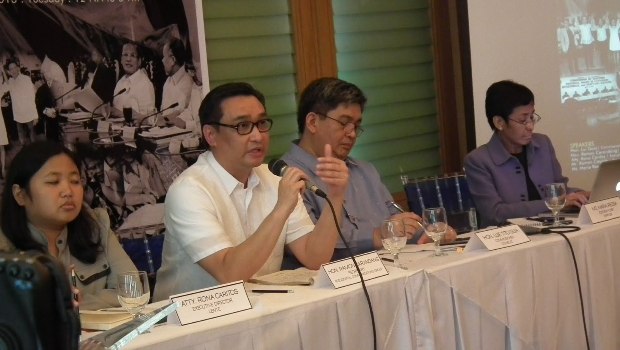TWO WEEKS after the national midterm elections, representatives from government, civil society and media called on the Commission on Elections (Comelec) to address issues of transparency and election-related conduct during the Ateneo Post-2013 Elections Summit held at Astoria Plaza Hotel, Pasig City last May 28.
Panelist Joy Aceron, director of Ateneo School of Government’s (ASoG) Political and Democracy Reforms (Poder) program, noted that the recently concluded elections were “generally peaceful and credible.”
However, she pointed out that legally mandated actions, such as making the source code of the machines available, were not “convincingly addressed” and that these need some explanation from the poll body.
“When it comes to information, the reliability and credibility is something that needs checking,” she said.
Meanwhile, Sec. Ricky Carandang, head of Malacañang’s Presidential Communications Development and Strategic Planning Office, said the Comelec needs to be more “proactive on explanations” and that successful elections require better information dissemination.
“Is 76% [of the official tally] enough [to proclaim winners]? We were told that not everything will be transmitted. There were glitches, but is this acceptable?” asks Carandang, one of the speakers in the post-election forum.
Carandang also questioned the absence of an explanation as to why the speed of transmitting results dropped two days after the canvassing began. Without any clarification, he said, the issue may “undermine the credibility of the elections.”
Atty. Rona Caritos, executive director of the Legal Network for Truthful Elections, argued that there were “no genuine elections” that took place. She listed cases of discrepancies in the voters’ list, insufficient and pre-shaded ballots and vote buying. Teachers serving as board of election inspectors, Caritos observed, lacked the “necessary familiarity and knowledge on technical aspects.”
“We are not contesting the results of the election. What we are after is the conduct of the election,” Caritos stressed.
Newly appointed Comelec Commissioner Luie Tito Guia acknowledged that “there has been a communications problem in the part of Comelec.” But he also pointed out the poll body’s “unprecedented efforts” in enforcing election laws.
One innovation, Guia said, was the creation of a campaign finance-monitoring unit tasked to verify election spending. Another were the special registration drives held for individuals such as persons with disabilities, indigenous people and non-convicted prisoners.
The Comelec has also filed lawsuits against candidates who have repeatedly violated rules regarding illegal campaign paraphernalia. Thirty-three cases are now pending before the courts.




